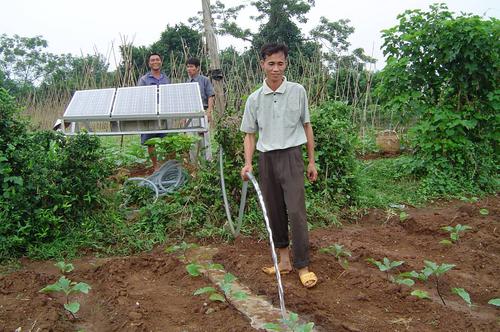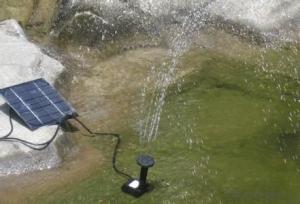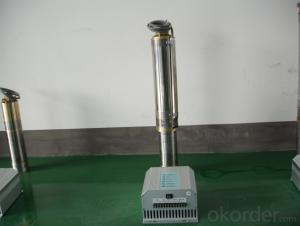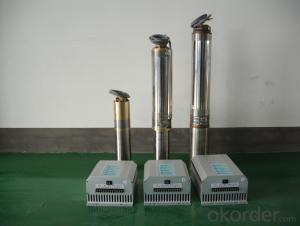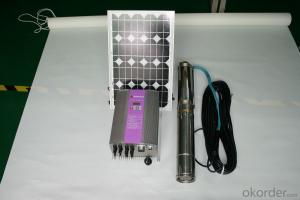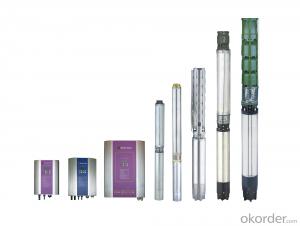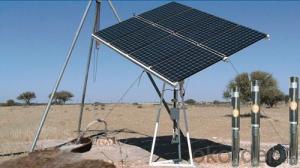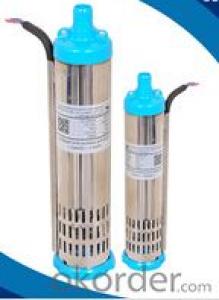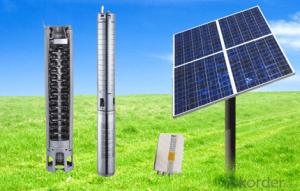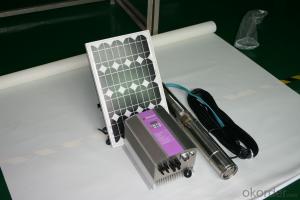Solar Pump for Pond - Irrigation Solar Water Pump
- Loading Port:
- Shanghai
- Payment Terms:
- TT OR LC
- Min Order Qty:
- -
- Supply Capability:
- 300 set/month
OKorder Service Pledge
Quality Product, Order Online Tracking, Timely Delivery
OKorder Financial Service
Credit Rating, Credit Services, Credit Purchasing
You Might Also Like
how is the rotor made:
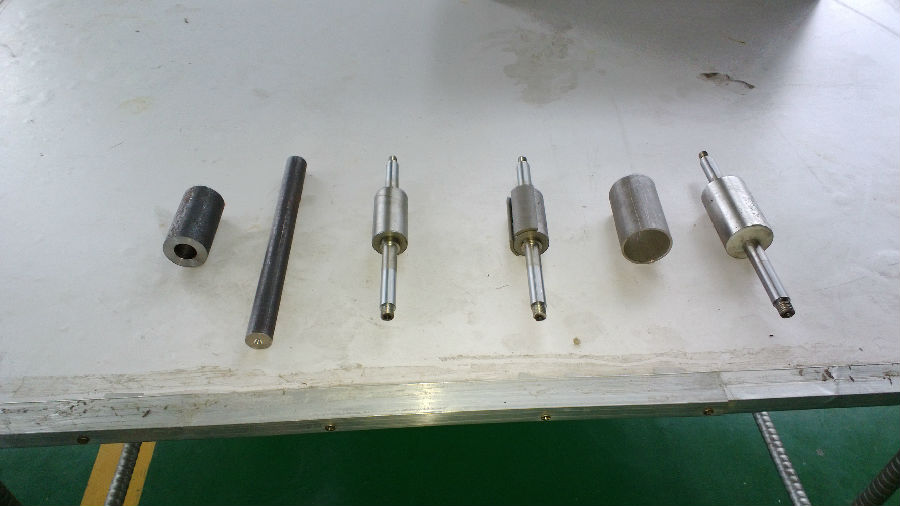
how is the motor made:
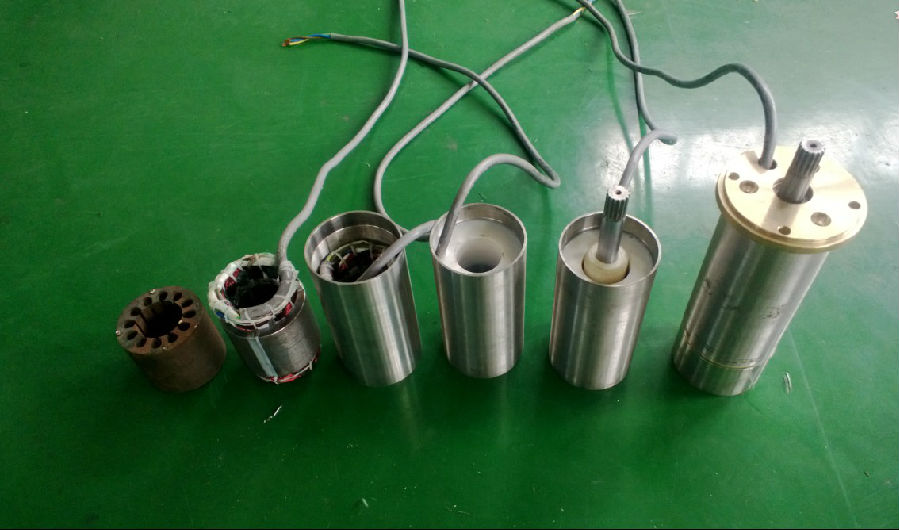
the pump :
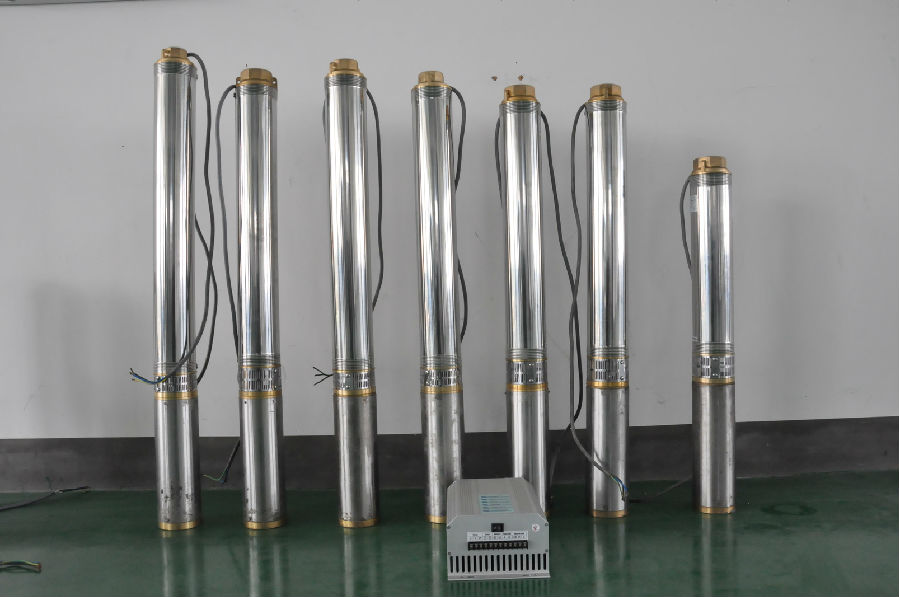
controller terminal connection:
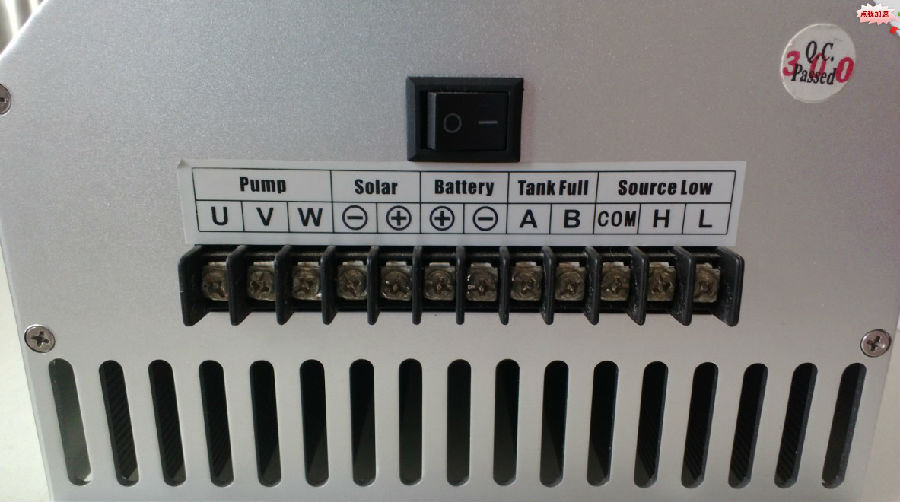
The permanent magnet:
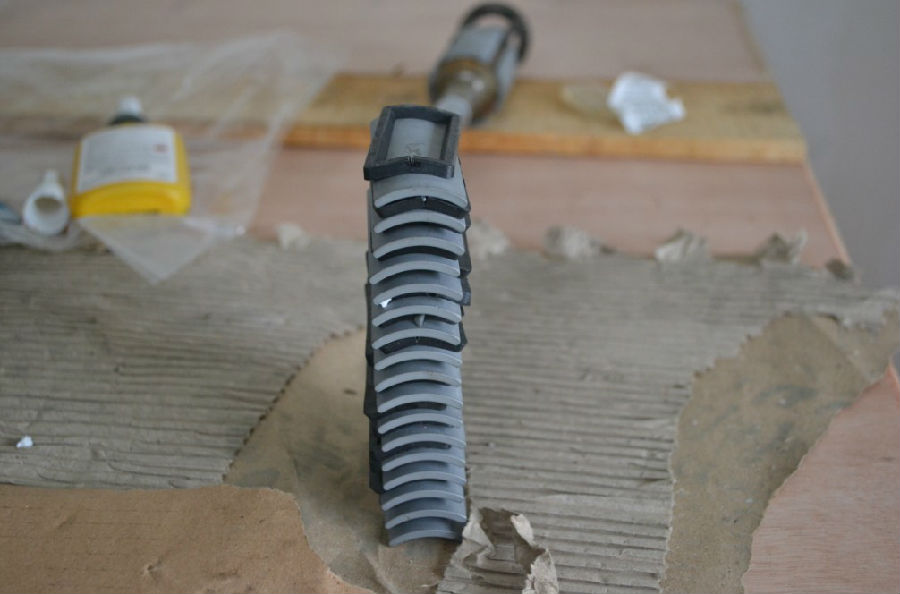
the impeller:
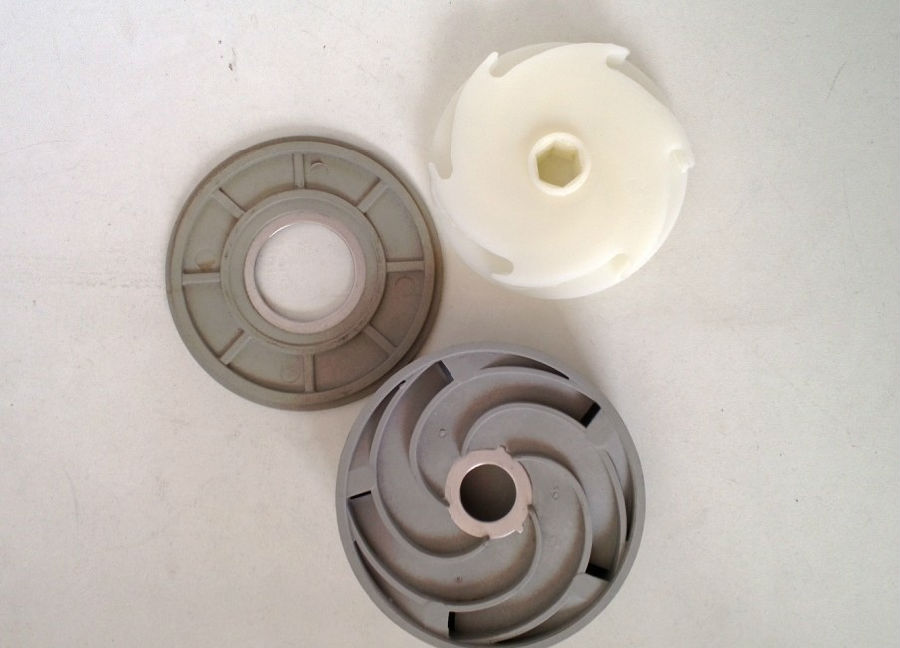
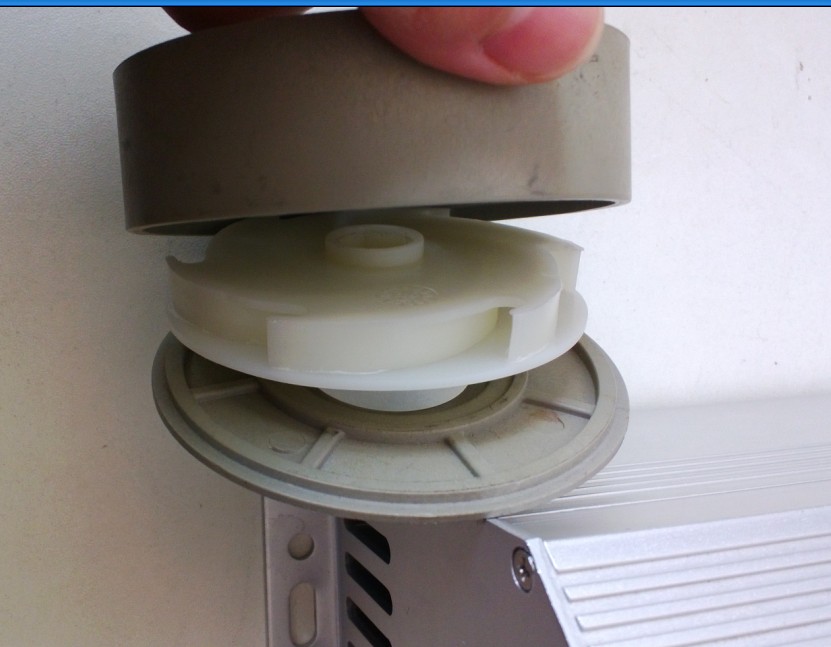
controller box:
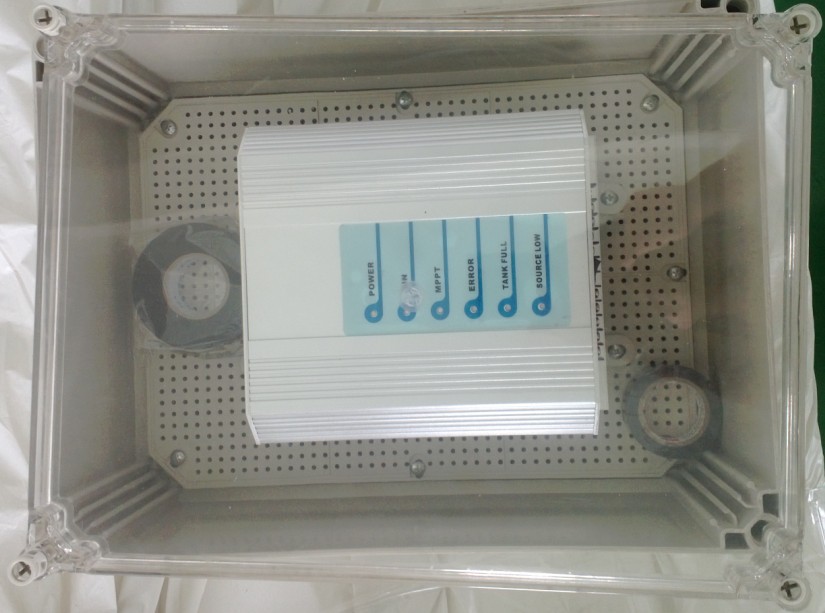
the senors:
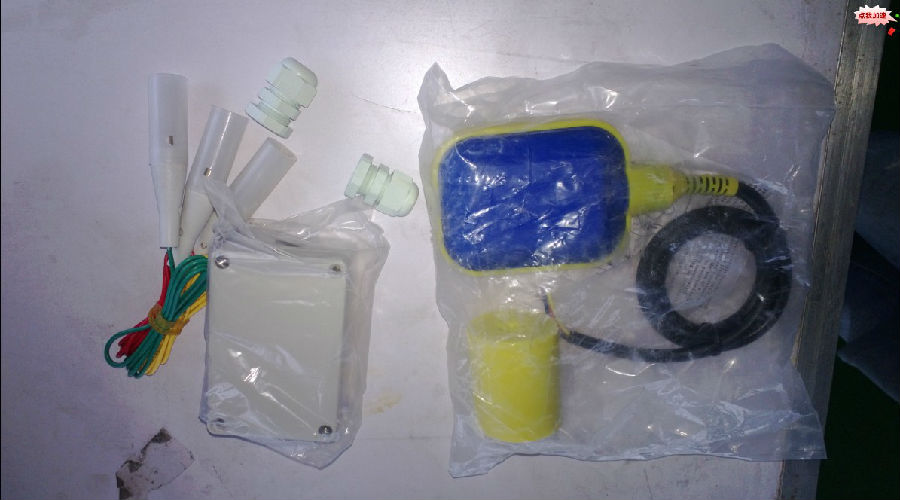
the test:
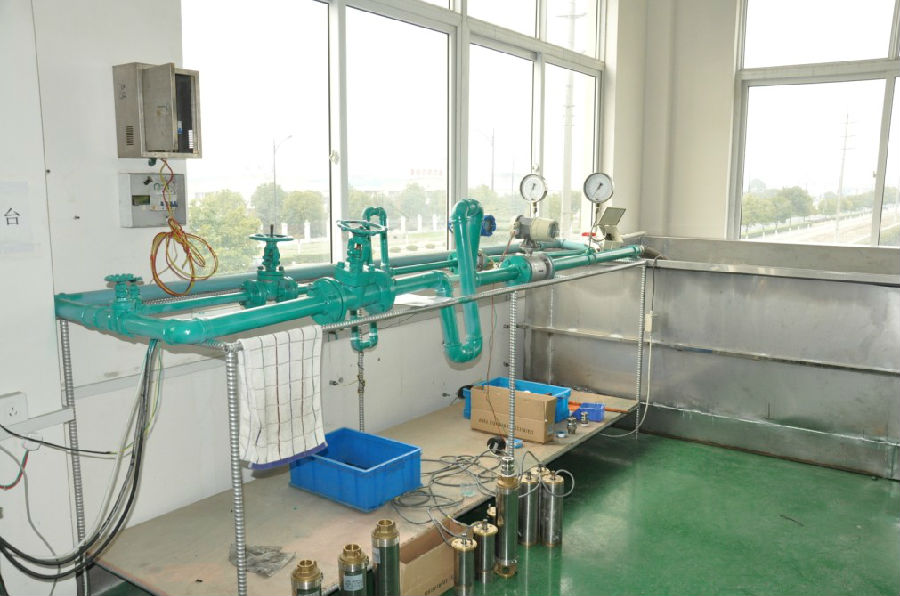
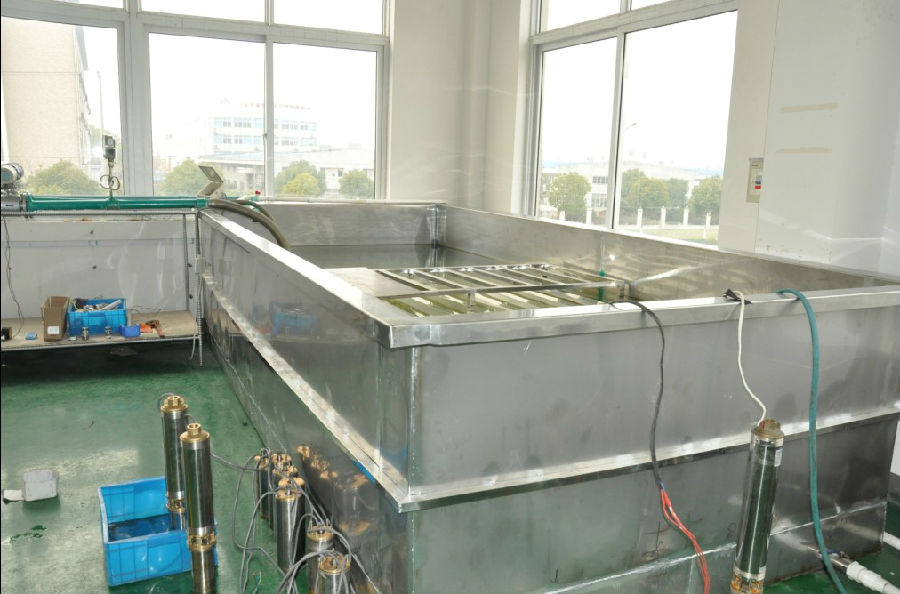
the application:
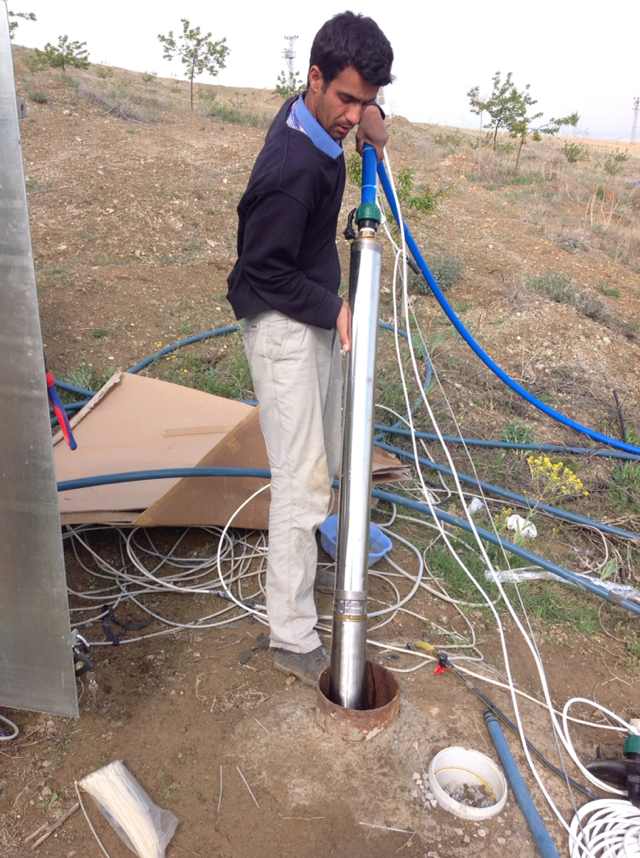
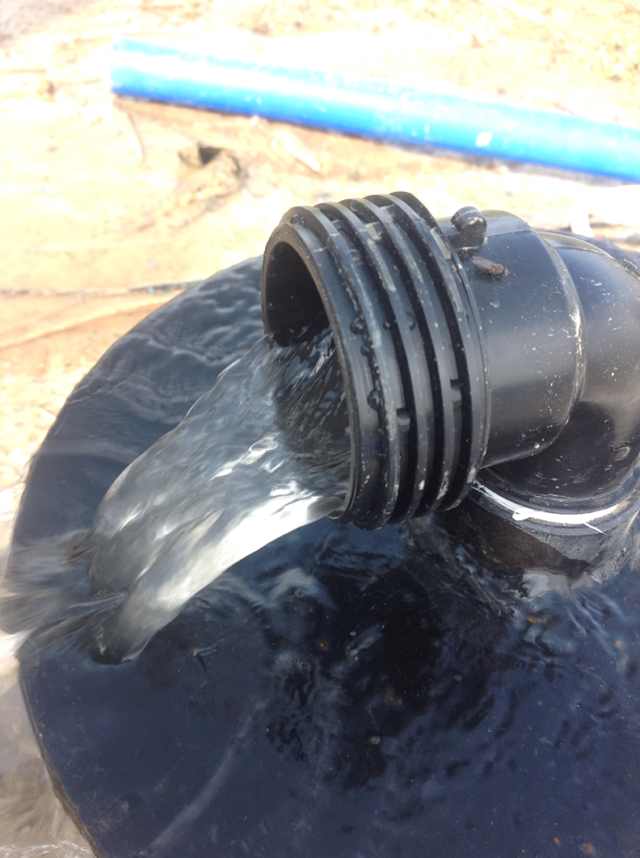
the package:
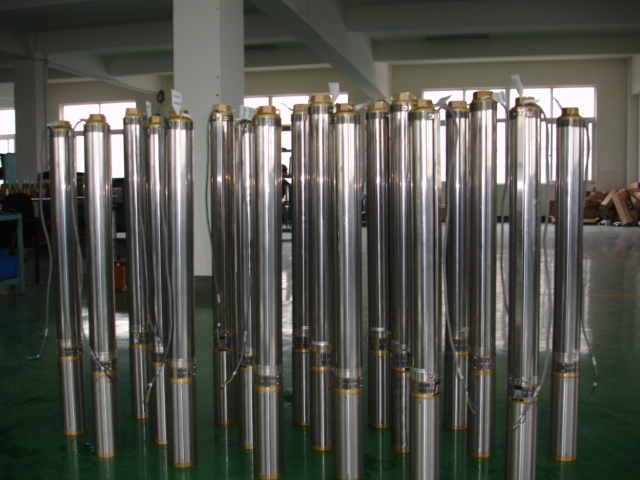
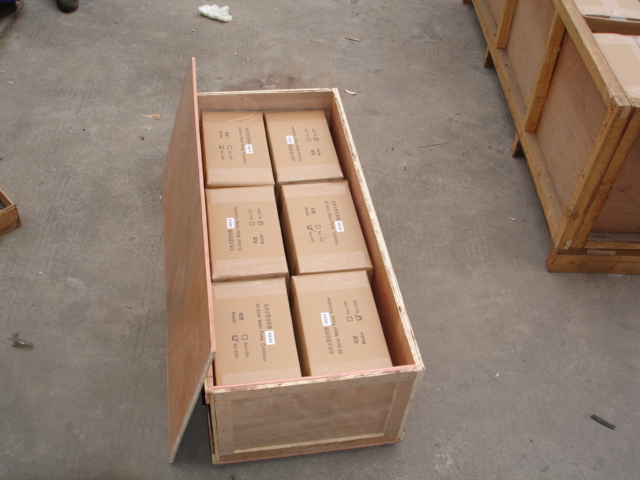
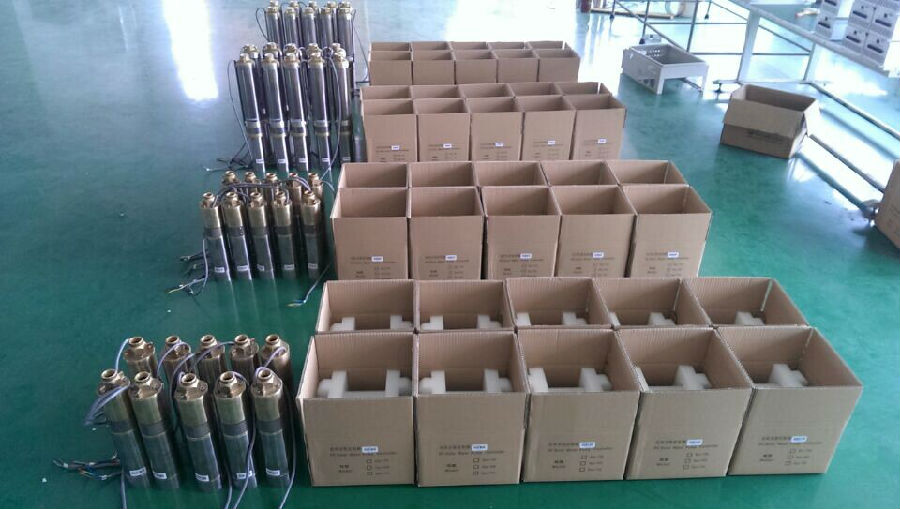
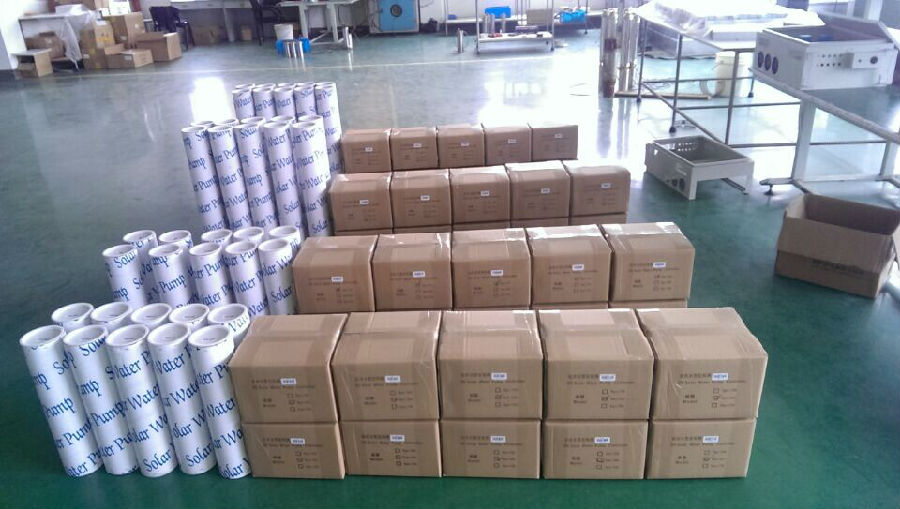
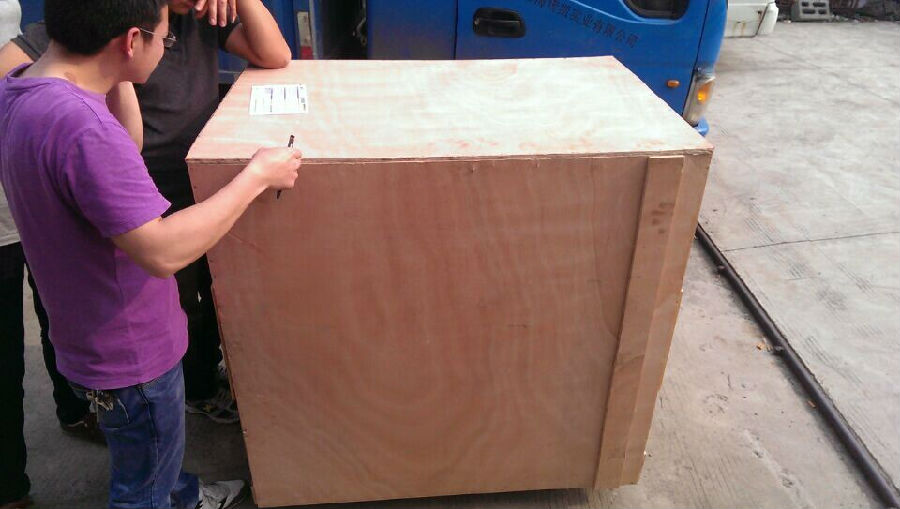
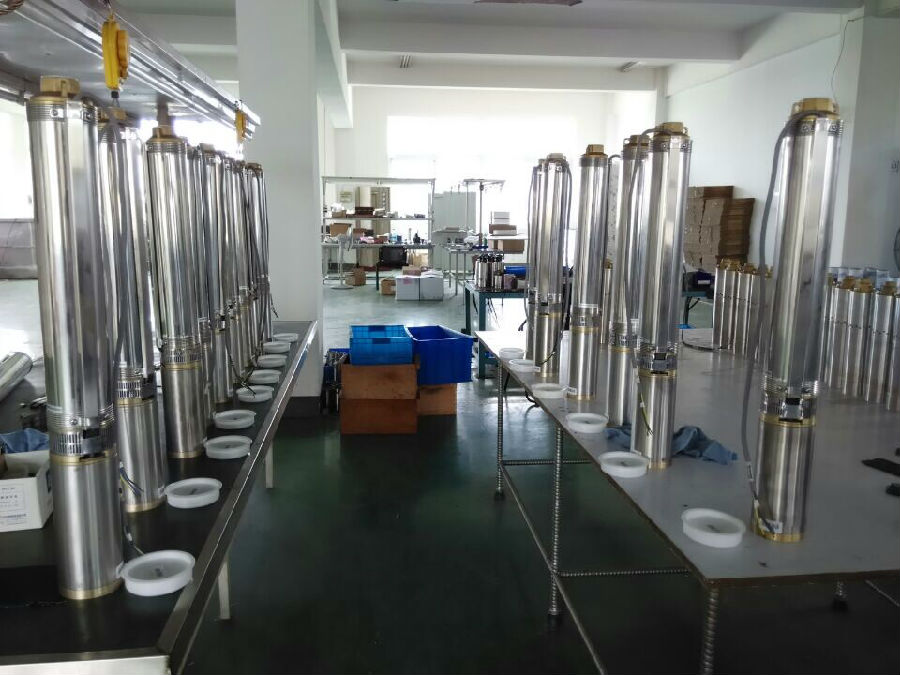
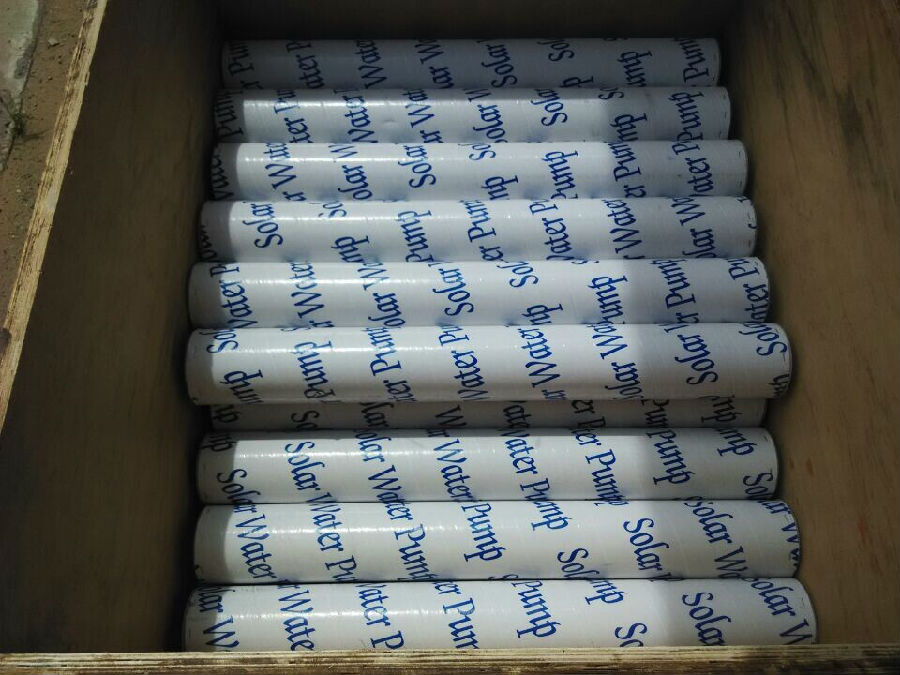
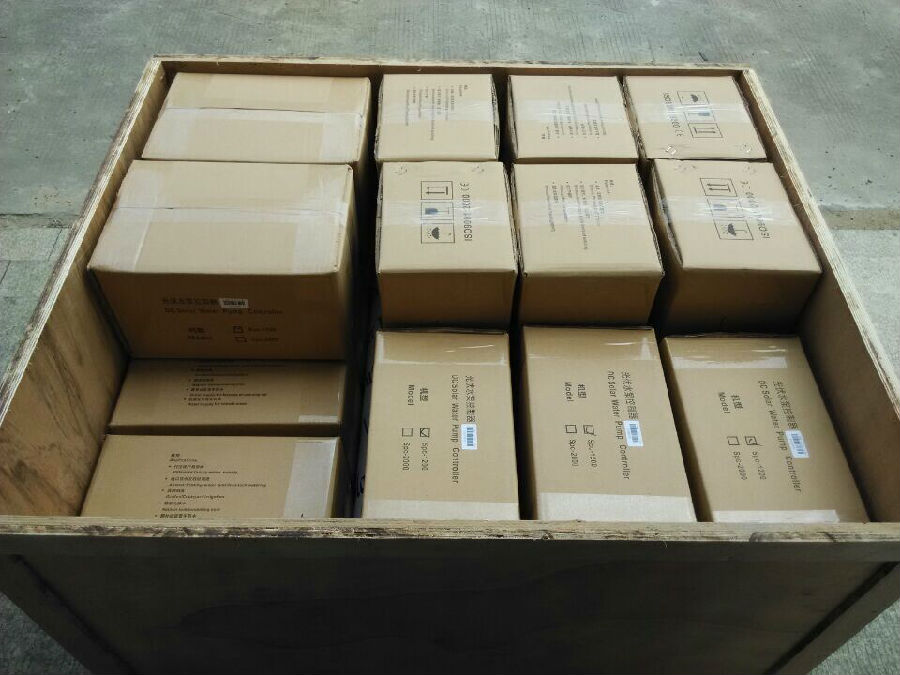
- Q: Can a solar pump be used in off-grid homes?
- Yes, a solar pump can be used in off-grid homes. Since off-grid homes do not have access to traditional electricity sources, solar pumps provide a sustainable solution for water pumping needs. These pumps utilize solar energy to power their operation, making them an ideal choice for off-grid living. They are environmentally friendly, cost-effective, and reliable, ensuring a continuous water supply for off-grid homes.
- Q: Are there any limitations on the installation location or orientation of solar panels for a solar pump?
- Yes, there are certain limitations on the installation location and orientation of solar panels for a solar pump. The panels should ideally be installed in a location that receives maximum sunlight throughout the day. This means avoiding shaded areas or areas with obstructions like trees or buildings. Additionally, the orientation of the panels should be towards the south (in the northern hemisphere) or towards the north (in the southern hemisphere) to ensure optimal exposure to sunlight.
- Q: Can a solar pump be used for water supply in a recreational park or campground?
- Certainly, a solar pump is suitable for supplying water in a recreational park or campground. In areas where there is abundant sunlight, solar pumps are a great alternative to conventional electric or diesel pumps. These pumps function by using solar panels to generate electricity, which is then utilized to power the pump and extract water from a well or reservoir. The utilization of a solar pump for water supply in a recreational park or campground presents several advantages. First and foremost, it is an environmentally-friendly option as it relies on renewable solar energy. This reduces carbon emissions and aids in combating climate change. Additionally, solar pumps are generally low maintenance and have a lengthy lifespan, making them cost-effective in the long run. In terms of practicality, solar pumps can be easily installed in remote areas that lack access to grid electricity. Moreover, they are capable of providing a consistent and dependable water supply, as long as there is sufficient sunlight available. This makes them highly suitable for providing water to recreational parks or campgrounds, where a steady water source is crucial for activities such as showering, handwashing, and irrigation. However, before implementing a solar pump for water supply in a recreational park or campground, certain factors need to be considered. These include the availability of sunlight throughout the year, the water demand, and the size of the pump system. Additionally, proper maintenance and monitoring are essential to ensure optimal performance of the solar pump. In conclusion, a solar pump is definitely a viable option for water supply in a recreational park or campground. It offers an environmentally-friendly and cost-effective solution that can provide a reliable and sustainable water source for various purposes.
- Q: Are there any specific installation requirements for a solar pump system?
- A solar pump system has specific installation requirements that can vary depending on the system's type, size, location, and intended use. To begin, it is important to ensure that the solar panels receive sufficient sunlight throughout the day. Ideally, they should be installed on a roof or in an area with unobstructed access to sunlight. Moreover, the panels should be positioned at an optimal angle to maximize solar energy absorption. In addition, the system should be installed in a location that allows for easy maintenance and repairs. This involves providing enough clearance around the system and ensuring that there are no obstructions that could hinder access to the pump, controller, or other components. Another crucial requirement is the proper sizing and installation of the pump itself. This entails considering factors such as the required flow rate, pressure, and the specific application of the pump system. It is essential to choose a pump that is suitable for the intended use and meets the system's requirements. Moreover, the system should be installed with safety precautions in mind. This includes grounding the system to protect against electrical shocks and ensuring that all electrical connections are adequately insulated. It is also advisable to incorporate a disconnect switch and surge protection devices to safeguard the system from power surges and other electrical issues. Lastly, it is crucial to adhere to local building codes and regulations related to solar pump system installation. This may involve obtaining necessary permits and complying with specific guidelines established by local authorities. Overall, the installation of a solar pump system necessitates careful consideration of factors such as solar panel placement, pump sizing, safety measures, and compliance with local regulations. It is recommended to consult with a professional installer or seek guidance from reputable manufacturers to ensure a successful and efficient installation.
- Q: Can a solar pump be used for wastewater irrigation?
- Yes, a solar pump can be used for wastewater irrigation. Solar pumps are designed to be powered by solar energy, making them a sustainable and eco-friendly option for various applications, including irrigation. Wastewater irrigation involves using treated or untreated wastewater for agricultural purposes, which can help conserve freshwater resources. By utilizing a solar pump, the energy required for pumping the wastewater can be obtained from the sun, reducing the reliance on non-renewable energy sources. Solar pumps can be installed in remote locations without access to electricity, allowing for wastewater irrigation in areas where traditional pumping systems are not feasible. Additionally, solar pumps are often low-maintenance and have a long lifespan, making them a cost-effective choice for wastewater irrigation systems.
- Q: How does the quality of water affect the performance and lifespan of a solar pump?
- The quality of water can significantly affect the performance and lifespan of a solar pump. Firstly, the presence of impurities such as sand, sediment, or debris in the water can cause clogging and damage to the pump components. These impurities can enter the pump system and block the flow of water, leading to decreased efficiency and lower performance. Over time, this can cause wear and tear on the pump, reducing its lifespan. Secondly, the pH level and chemical composition of the water can also impact the performance and lifespan of the solar pump. Water with a high level of acidity or alkalinity can corrode the pump's parts, including the motor, impellers, and seals. Corrosion can weaken the pump's structure and result in leaks, malfunctions, or even complete failure. Additionally, water with high levels of minerals or salts can cause scaling and build-up on the pump's surfaces, reducing its efficiency and causing damage over time. Furthermore, the presence of bacteria, algae, or other microorganisms in the water can also affect the performance of a solar pump. These organisms can grow and multiply within the pump system, leading to fouling and clogging of the pump's components. This can result in decreased water flow, increased energy consumption, and reduced overall lifespan of the pump. To mitigate the impact of water quality on the performance and lifespan of a solar pump, regular maintenance and cleaning are necessary. Installing appropriate filters and strainers can help remove impurities and prevent clogging. Monitoring and adjusting the pH levels of the water can help prevent corrosion. Using water treatment methods such as chlorination or UV sterilization can help reduce the growth of microorganisms. Additionally, choosing a solar pump that is specifically designed to handle the quality of water in a particular area can also contribute to improved performance and longevity.
- Q: Can a solar pump be used for water circulation in fountains or decorative features?
- Yes, a solar pump can be used for water circulation in fountains or decorative features. Solar pumps are designed to operate using energy from the sun, eliminating the need for electricity or batteries. They are efficient and eco-friendly, making them suitable for powering water features such as fountains, birdbaths, and decorative ponds.
- Q: Can a solar pump be used for water purification?
- Yes, a solar pump can be used for water purification. Solar pumps are often used in combination with water purification systems to provide a sustainable and environmentally friendly solution for accessing clean and safe water. These pumps are powered by solar energy, which means they do not require electricity from the grid or fuel for operation. Solar pumps can be used to extract water from wells, rivers, or other water sources, and then the water can be purified through various methods such as filtration, UV treatment, or chemical disinfection. This combination of solar pumping and water purification can be particularly beneficial in remote or off-grid areas where access to electricity is limited, and it can help improve access to clean water for drinking, cooking, and other domestic or agricultural purposes.
- Q: How does a solar pump handle power fluctuations or surges?
- A solar pump typically handles power fluctuations or surges by utilizing a built-in inverter or a power optimizer. These components regulate and stabilize the power supply received from the solar panels, ensuring a consistent and reliable flow of electricity to the pump. Additionally, certain solar pumps may incorporate surge protection devices to safeguard against sudden power surges and prevent damage to the pump's motor or other sensitive components.
- Q: Can solar pumps be used for water supply in military or defense applications?
- Yes, solar pumps can be used for water supply in military or defense applications. Solar pumps are highly versatile and can be deployed in remote locations where traditional power sources may be unreliable or unavailable. They can provide a reliable and sustainable water supply for various military operations, including field camps, forward operating bases, and disaster response situations. Additionally, solar pumps are cost-effective, environmentally friendly, and require minimal maintenance, making them a suitable choice for military and defense applications.
Send your message to us
Solar Pump for Pond - Irrigation Solar Water Pump
- Loading Port:
- Shanghai
- Payment Terms:
- TT OR LC
- Min Order Qty:
- -
- Supply Capability:
- 300 set/month
OKorder Service Pledge
Quality Product, Order Online Tracking, Timely Delivery
OKorder Financial Service
Credit Rating, Credit Services, Credit Purchasing
Similar products
Hot products
Hot Searches
Related keywords

